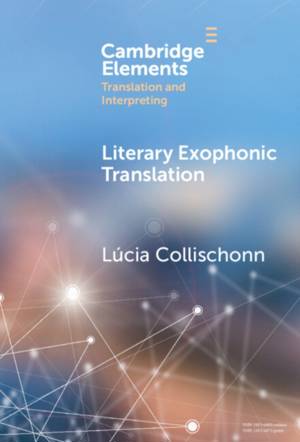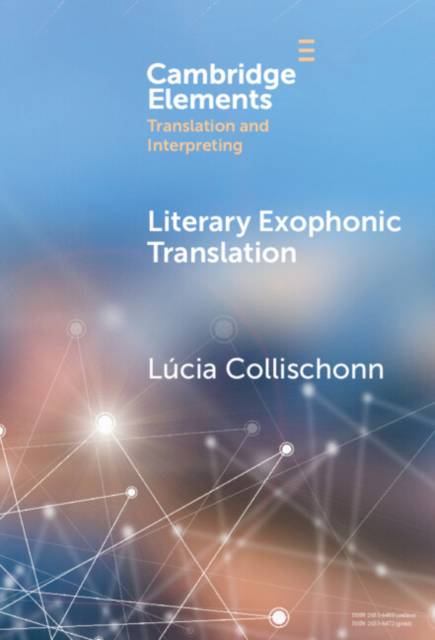
- Afhalen na 1 uur in een winkel met voorraad
- Gratis thuislevering in België vanaf € 30
- Ruim aanbod met 7 miljoen producten
- Afhalen na 1 uur in een winkel met voorraad
- Gratis thuislevering in België vanaf € 30
- Ruim aanbod met 7 miljoen producten
Zoeken
Omschrijving
This Element explores literary translation into a non-native language (L2 translation), investigating how it has been regarded by translation studies, particularly in the anglophone context. L1 directionality (into the translator's L1) remains the norm in the literary translation world, reflecting a systemic bias against the multilingual subject and towards the monolingual. In a post-monolingual paradigm, the notion of a mother tongue has become increasingly problematic. What are the implications of this for directionality in translation? Studies on L2 translation still focus on and privilege the native speaker. Applying the notion of exophony (i.e., writing in a foreign language) to translation (in what is termed exophonic translation), this Element draws on insights from sociolinguistics, applied linguistics, translation history, and translator studies to lay the groundwork in advocating for an exophonic, multilingual turn in translation studies. To what extent can this change the way L2 translation is approached and studied?
Specificaties
Betrokkenen
- Auteur(s):
- Uitgeverij:
Inhoud
- Aantal bladzijden:
- 76
- Taal:
- Engels
- Reeks:
Eigenschappen
- Productcode (EAN):
- 9781009535410
- Verschijningsdatum:
- 12/06/2025
- Uitvoering:
- Hardcover
- Formaat:
- Genaaid
- Afmetingen:
- 152 mm x 229 mm
- Gewicht:
- 281 g

Alleen bij Standaard Boekhandel
+ 209 punten op je klantenkaart van Standaard Boekhandel
Beoordelingen
We publiceren alleen reviews die voldoen aan de voorwaarden voor reviews. Bekijk onze voorwaarden voor reviews.








